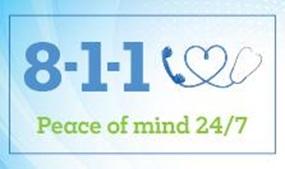Quitting Smoking: Support for People with Cancer
The PEI Cancer Treatment Centre offers a Tobacco Cessation and Relapse Prevention Program to help patients quit smoking. This program is available free of charge to both patients and caregivers of patients who smoke cigarettes, vape, or use other tobacco products.
Is it to late to quit smoking if I already have cancer?
No. Quitting smoking is one of the best things you can do to help your cancer treatment be more effective, reduce cancer symptoms, and reduce treatment side effects. Quitting smoking also reduces the chance of your cancer returning or developing another form of cancer.
How does quitting smoking help my cancer treatment??
If you are having surgery, quitting smoking can make surgery safer and help you recover more quickly. People who do not smoke are less likely to have surgical complications and they are less likely to develop infections.
If you are having radiation therapy, quitting smoking can help the radiation therapy be more effective. When you smoke the level of oxygen in your blood drops making it harder for radiation therapy to do its job.
If you are having chemotherapy, quitting smoking can help the medications be more effective. Tobacco smoke has chemicals in it that reduce the levels of some chemotherapy drugs, making them less effective.
How can the PEI Cancer Treatment Centre help me quit?
Quitting smoking is a process, not an event. There are tobacco educators at the PEI Cancer Treatment Centre who can help you develop a personalized quit plan and guide you through the process of quitting smoking. Getting professional support can double your chance of quitting successfully.
Combining the support of a professional with a quit-smoking aid can triple your chance of quitting successfully. Quit-smoking aids include nicotine replacement therapy (such as the patch, inhaler, oral spray, gum or lozenges) and prescription medications. Your cancer care team and the tobacco educators can help you find the best quit-smoking aid to meet your unique needs. They can also connect you to programs to help cover the cost of quit-smoking aids.
How do I connect with a tobacco educator?
All new patients at the PEI Cancer Treatment Centre are screened for recent or current tobacco use. You will be asked “When was the last time you smoked, even a puff?” Patients who identify as having used a tobacco product in the previous six months are connected with a tobacco educator. The tobacco educator does an assessment, provides information, and offers individualized quit-smoking support.
You may access tobacco cessation support at any time during your cancer care journey, even if you initially chose not to participate in the tobacco cessation program. Please ask any member of your cancer care team to be connected with a tobacco educator.
If you have additional questions about the Tobacco Cessation and Relapse Prevention Program please reach out to the Cancer Patient Navigator by calling 902-894-2552, or email cancerpatientnavigator@ihis.org.
What other resources are available to help me quit smoking?
In addition to your cancer care team and the tobacco educators at the PEI Cancer Treatment Centre, there are many other programs and services available to help you quit. What worked well for one person may not work for another person. Don’t give up! You may want to consider reaching out to your local pharmacist, family doctor or nurse practitioner. There are also many resources available online. Check out the resources listed on the right side of this page.
|
|
You can now access your diagnostic imaging reports and laboratory test results online through your MyHealthPEI account. |



